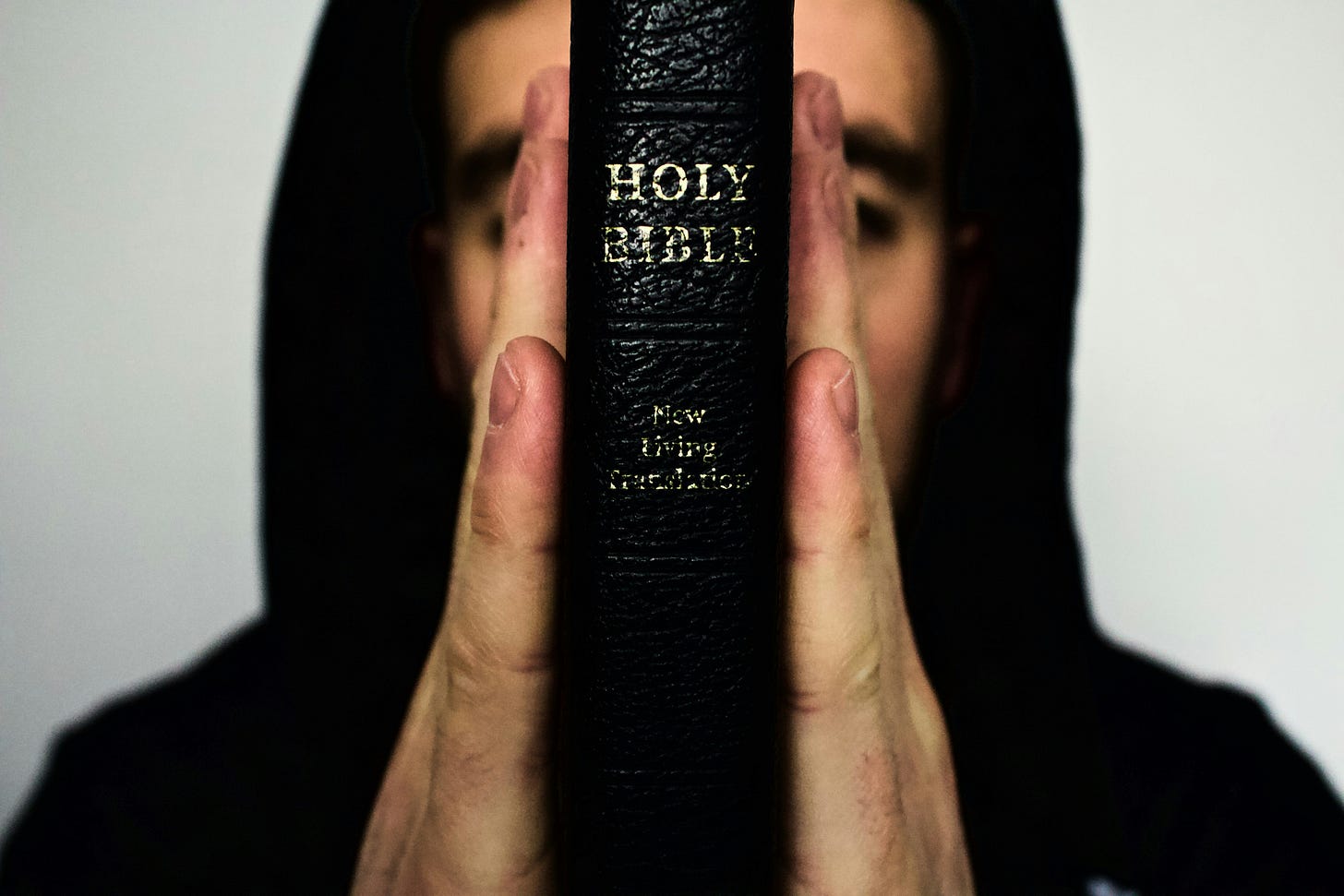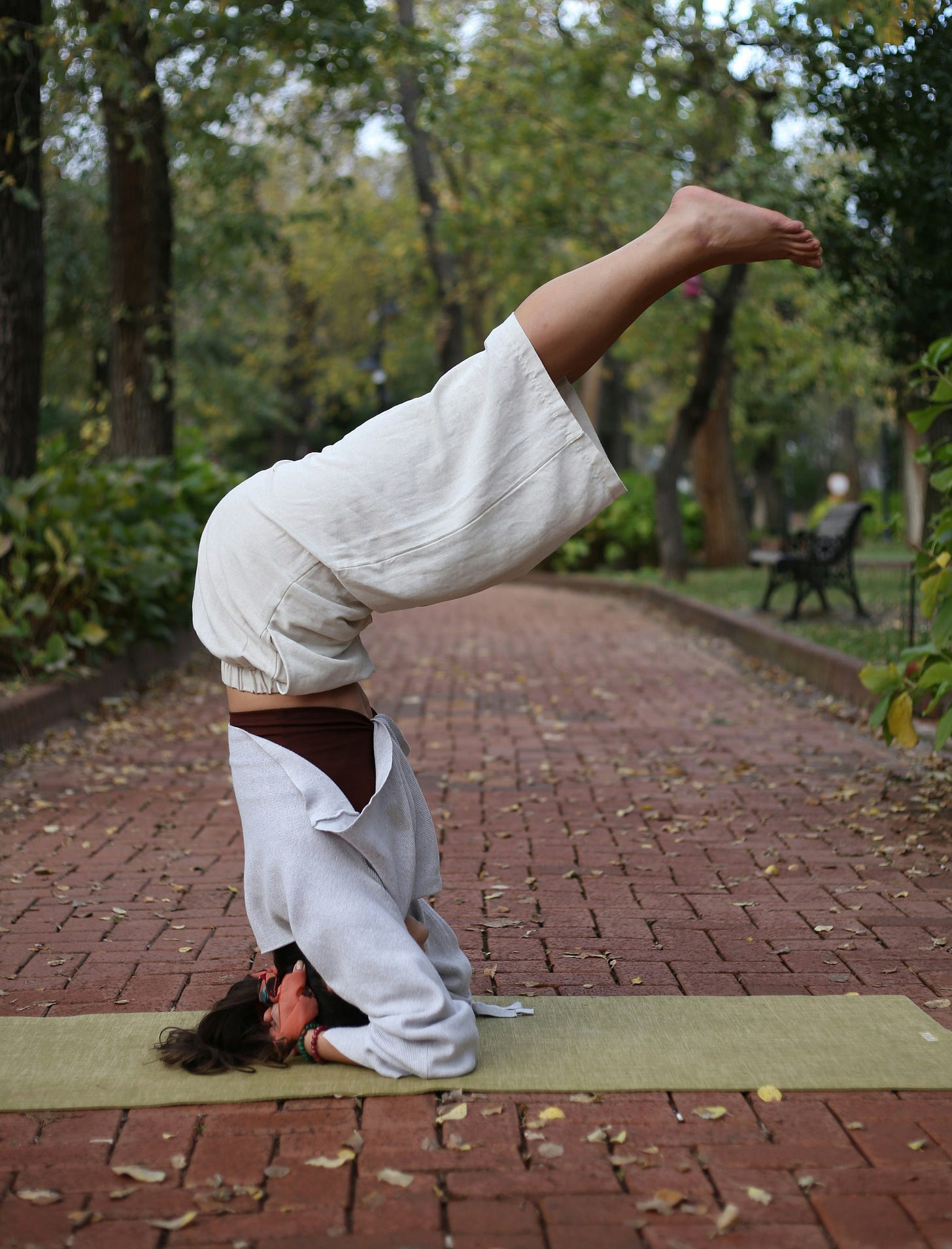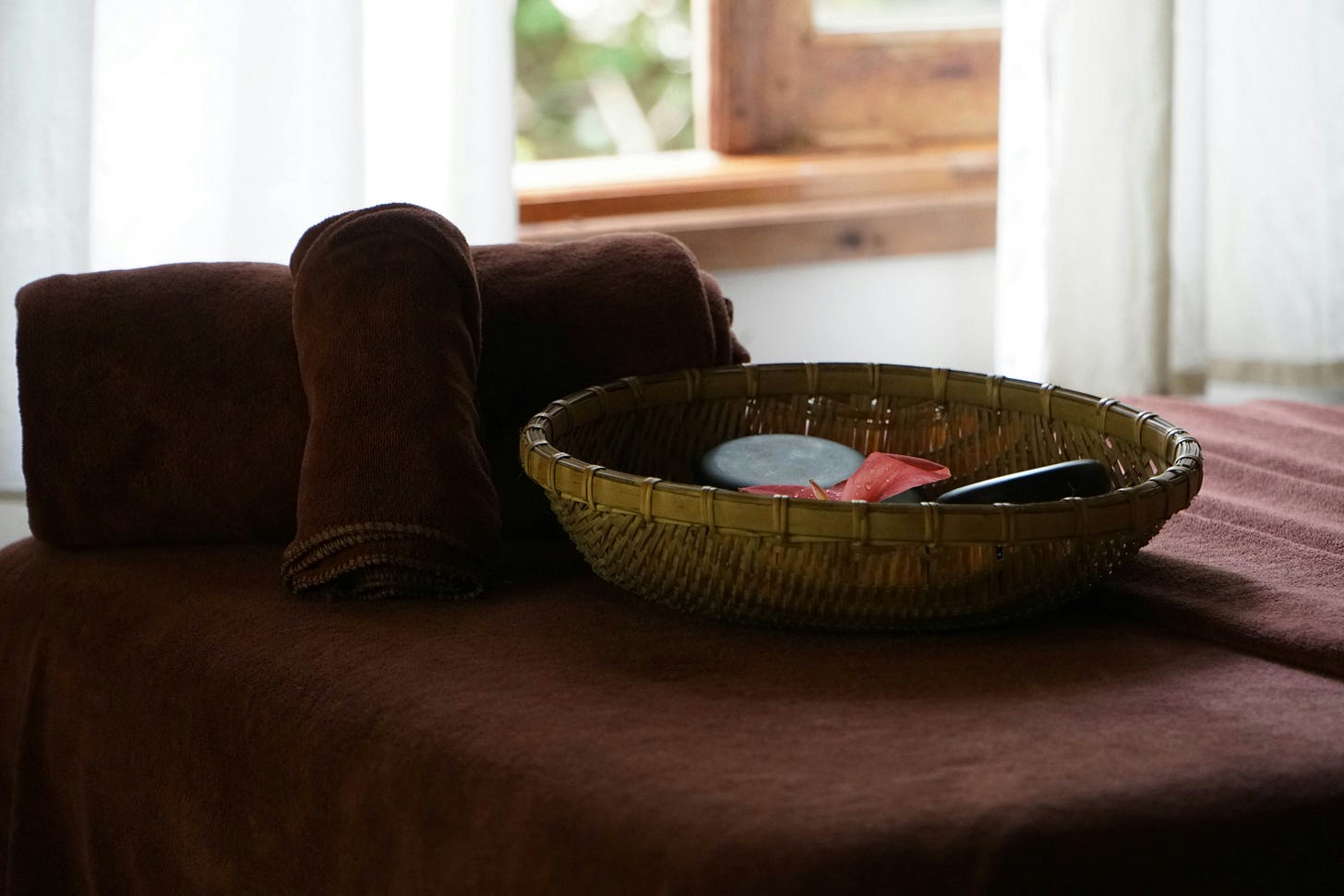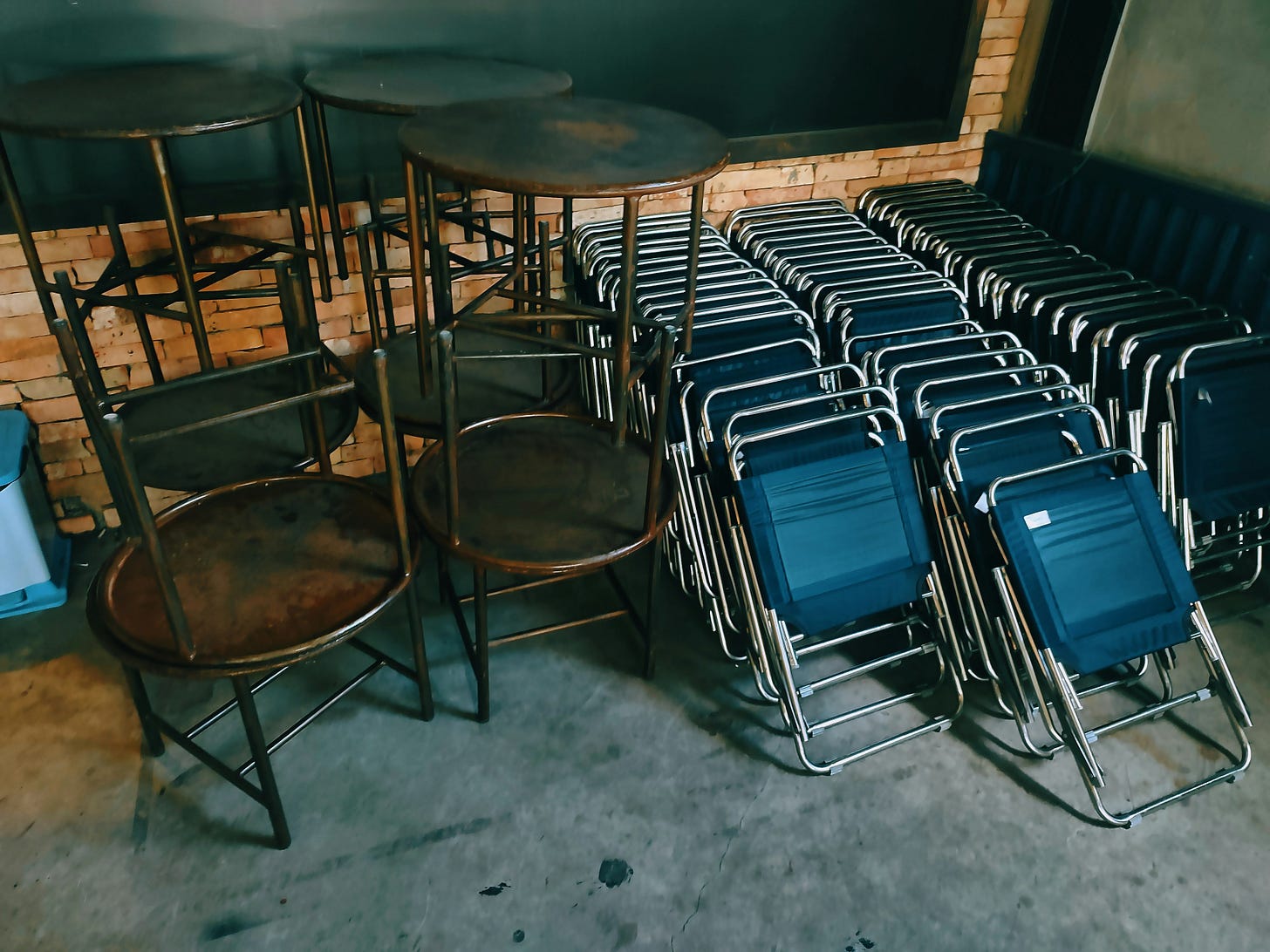Addicted to Being Right
A journey from black-and-white thinking to slow, embodied grace
Having the “correct and true” beliefs has always mattered to me, even when I’ve pretended otherwise, or even thought that it didn’t. As an adolescent, I gripped a certainty that I knew the truth about God, that Jesus forgave my sin by way of bloody crucifixion, that a knowledge of my eternal fate was seemingly assured—and that I shared responsibility to tell the world good news in order that everyone else, too, might be rescued from hellfire’s disaster. This certainty did not last long, though, because anxiety and doubt reliably set in: had I done something to offend God (usually associated with teenage hormones) and jeopardize my heavenly eternity status? Thinking I knew the truth did not mean that my body or emotions agreed.
The Panic of Uncertainty
In college years, my belief system began to crack. The doubt became too difficult to ignore, and I began to have quasi-panic attacks related to the certainty and security of my beliefs. I would settle down in a Gordon College library carrel and open my first laptop—a black Gateway, if memory serves— to write a paper, only to have panic set in about whether a tenet of Christianity was true or not. Was the Bible trustworthy and the infallible word of God? One minute I felt assured, and the next I felt uncertain and imperiled. I read books obsessively on the theme of “apologetics,” or demonstrations of “proof” about Christian beliefs, memorized their arguments, and rehearsed them back to myself to calm my spinning mind. It worked for a while, with certainty functioning like a drug to which I was addicted, until the next time doubt set in.
Photo by Nathaniel Shuman on Unsplash
Thinking I knew the truth didn’t mean my body or emotions agreed.
Survival Theology and Nervous System Response
My body and brain acted as if being right or wrong about Christian beliefs was a matter of survival with eternal consequences. The high control religious environment of evangelicalism in which I was raised ensured that everyone knew where the boundaries of correct belief ended and where heresy, with its accompanying divine banishment and hell-bound torment, began. Questioning the authority of the Bible? Dangerous. Questioning whether Jesus was divine? Dangerous. Struggling with substitionary atonement? Playing with fire. Wondering if LGBTQ+ friends might be saved by Jesus, too? Liberal (which was the same thing as dangerous).
In hindsight, I can say that doubt activated a trauma response in me. My sympathetic nervous system operated as if the mere doubting thought about evangelical orthodoxy was unsafe and a threat. My body and brain responded accordingly: I must persuade pesky doubts of the truth at all costs! Bring out the apologetic army!
Saved by the Breath
First yoga saved me, and then I walked into a spacious field of divine intimacy called contemplation, which saved me some more. To quote a couple of paragraphs of my book “The Holy Ordinary”:
I probably wouldn’t be a Christian today were it not for discovering yoga. I went through a long stretch of being bored with church and Christianity, of not finding any substantive meaning in what I said I believed. This crucible of faith also happened to take place in the middle of my ordination process! I served as a chaplain intern at a Boston hospital, enjoyed sponsorship for ordination by a Boston church, but when my life encountered crisis, the desire to worship and be with other Christians completely left me. It didn’t feel meaningful. And I felt disconnected from the deep grief I was carrying.
I found one place where I could experience an embodied connection to the Holy Spirit, a place where I could be real about my anger and sadness, and where I felt safe in allowing tears to stream down my face. That was yoga class. And so, on many Sunday mornings, I didn’t tell anybody where I was going or apologize to the minister. I just skipped church and rolled out my yoga mat on the hardwood floor of Back Bay Yoga studio in downtown Boston. I did downward dogs and upward dogs and headstands and handstands and wheels and cobras and camel poses. The irony is that as I created distance from church, I found myself longing to belong more fully to my Christian tradition. I started sitting in silence and reading books about prayer and Christian mysticism. I went to a retreat on the true and false self with Richard Rohr. I learned Centering Prayer from Cynthia Bourgeault. I grew thirstier to know and lead from within the depths of spiritual transformation that had existed all along in my home tradition, but which no one in church had ever told me was there.
Photo by Cansu Hangül on Unsplash
Contemplation as Disruption
The practice of contemplation, through sitting in stillness with God, disrupts my need for certainty. Other practices help the effort, too, like solitude, chanting Psalms, Eucharist, being a part of a community, therapy, and spiritual direction. When I sit in stillness, though, my body does not initially experience my meditation practice as welcoming or calming. It is more like a twice-daily intervention in the full and busy nature of my life and the survival tendencies of my paranoid thoughts. It’s uncomfortable. I talk to God about the discomfort. Sometimes my mind wanders. A lot of times my mind wanders. But the stillness persists and usually—not always—I let go, if only for a minute. The stillness and silence become a spacious embrace where I can rest, be, and be loved. There is no need for correct or false beliefs in that space—there is no need for thoughts at all. And then the timer goes off, or the kid asks for help with breakfast, or I catch my wife briefly before she heads out the door for work, and the day is off to the races.
Rightness in Every Stage
I’ve since studied mystical theology and been on a contemplative path of dedicated practice for fifteen years (give or take). Contemplation, along with embodied practices like yoga, running, or walking with my dog in the woods, disrupts my certainty and helps me dismantle my need for the “right” beliefs. But the work of contemplation is slow and takes a lifetime. And my addiction to certainty—what Peter Enns calls “the sin of certainty”—nestles in my psyche in indefatigable and gnarly ways. For example: I rather enjoy friendly debate-type conversations with either evangelicals or mainline liberals where I make the case that a socially engaged contemplative theology is “the right” way of being Christian. And that continues my trend of chasing “rightness” and “correct belief”: zeal for being right consumed me when I was an evangelical; I became a “radical Christian” for a stint during which I spoke openly about how I thought Christians who did not give up their property and possessions and work with people in poverty were not really Christians; as a more classic liberal Christian, I turned my nose down at my former evangelical tribe, convinced I had joined the more enlightened ranks; as a Christian contemplative, I can easily fall prey to the same trap: I’ve found an inclusive, evolving and rigorous path of love inspired by mystics—and I’m right!
Theology matters, truth exists, and how we think about God impacts our lives and world. I desire to believe in the most inclusive, compassionate, and loving way of understanding God that I can find, because I hope that such a God will over time do some mirroring in me. But the belief in a universally loving God does not mean that I am any more loving because I believe it. My brain’s security in being right and believing “correctly” can often lead me to greater isolation rather than connection, especially when I grip my rightness tightly, refuse to fully listen to differing perspectives, and don my armor for debate mode. Because debate mode, in spite of my stated certainties, can also be a defensive posture in which my brain and body are trying to minimize threats. I no longer rationally believe in divine punishment in hell or that God’s anger “needed” Jesus to die in my place—but that doesn’t mean that my body has caught up yet.
Certainty as Addiction, Recovery as Practice
I am powerless over my need for certainty, and a Power greater than me can restore me to (true, holistic) sanity that makes friends with unknowing.
Photo by Bùi Hoàng Long on Unsplash
I’ve written about being part of a spiritual community called the “Community of the Incarnation,” and sharing a rhythm of prayer and practice that is adapted for contemporary living. One of the commitments in our “rule of life”—think guiding values and practices, if that term from monasticism is new—is “adopting the 12 steps as a method of conversion of life.” The brilliance of combining 12-step work with spirituality is that it helps each of us come to terms with our powerlessness over our addictions, whether it is alcohol, eating, co-dependency, sex, rigid belief, or even certainty itself. It gives us a tested and ongoing process of growth, without excess theology, and it helps position the journey of contemplative transformation as slow, deep, often seemingly in the wrong direction, and yet ever-unfolding. I am powerless over my need for certainty, and a Power greater than me can restore me to (true, holistic) sanity that makes friends with not knowing and not needing to be right. And as the 12-steppers say, “it works if you work it, you’re worth it”!
P.S. At the end of last week’s post I mentioned I would write about Christian Zionism. That research has taken me down rabbit holes—such as the fact that the origins of Christian Zionism predate political Zionism, and that both evangelical fundamentalists and mainline liberal Christians are complicit in colonial theologies that harm Palestinians—so I’m going to let it simmer for a while. In the meantime, my prayer is still haunted by Gaza’s starving and dying, and I know from responses and comments that yours is, too.






I lost my post yesterday and I'm late. Already read this week's post. For this post on Gazza, I say Thank You so much! We Christian Brothers run Bethlehem University in Bethlehem, Palestine. All our Brothers there are Pro-Palestinian. I visited and see why. Our journalists don't give us the full story. My friend, Brother Peter, who has ministered at BU for 20 years, constantly reminds me we don't get the right picture. I watch the news with another Brother, who ministered in Palestine. His remarks are filled with sadness and pain at the lies. I sent your post to Peter. He needs to know that the truth is starting to be told here. Meanwhile the pictures of Gaza tell the stark truth. The media warns the watchers that the images are difficult ... sorry to upset you! Indeed! Please keep your research and writing coming, and Thank you again!
your brother, john mcmahon, fsc
I so appreciate this very personal, transparent essay, Mark. It reminds me of RR’s statement, and I paraphrase, that the root of suffering is not being in control. And, yet, he also states that we are transformed through great suffering and great love.